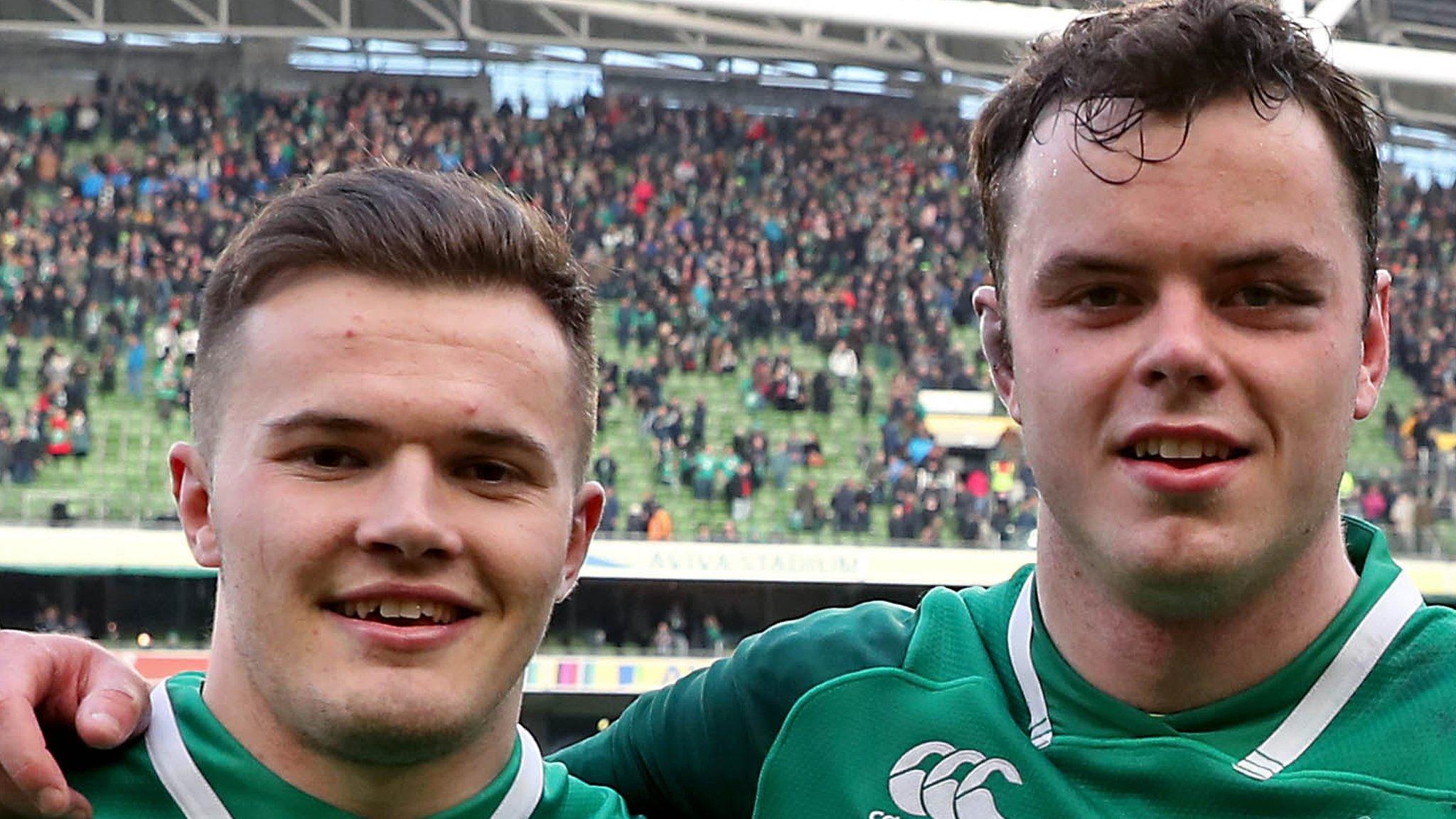Six Nations 2018: The contrasting styles of Johnny Sexton and Finn Russell
- Published
- comments
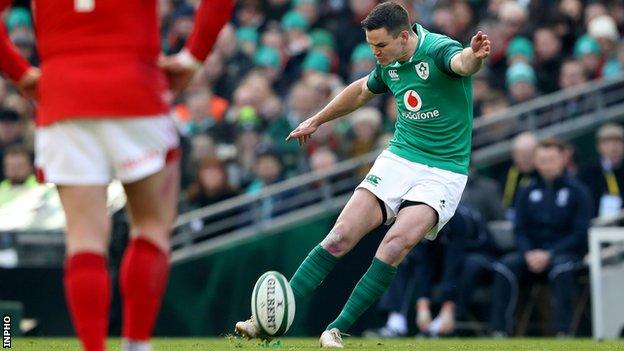
Sexton missed two penalty attempts and two conversions against Wales
Six Nations: Ireland v Scotland |
|---|
Venue: Aviva Stadium, Dublin Date: Saturday, 10 March Kick-off: 14:15 GMT |
Coverage: Live on BBC Radio 5 live sports extra, BBC Radio Ulster, BBC Radio Scotland & BBC Sport website and BBC Sport app, plus live text commentary. |
This weekend's opening Six Nations fixture represents a fascinating contest between two contrasting sides.
Scotland, with their free-flowing counter-attack, have recovered from the opening defeat by Wales to put themselves in contention for the title.
Ireland are chasing a Grand Slam thanks to a relentless, possession-based game that uses an array of strike plays to attack at the opposition's weaknesses.
The contrast between the sides is best demonstrated by their fly-halves.
This summer, Finn Russell will emulate Johnny Sexton when he leaves Glasgow to join Racing 92 - a switch similar to Sexton's ill-fated move from Leinster to the Top-14 giants between 2013 and 2015.
Aside from their appreciation of the Parisian lifestyle, there are precious few similarities between the two number 10s, who are the greatest influencers on the differing styles of play we will see on Saturday.
A tale of two 10s
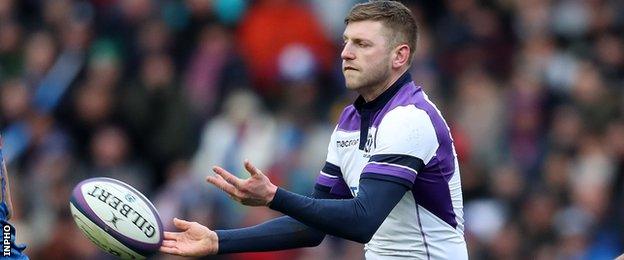
Russell's range of passing has been a highlight of the 2018 Six Nations
Since succeeding Vern Cotter as Scotland head coach, Gregor Townsend has attempted to transfer the high-tempo attacking game he employed so successfully with Glasgow Warriors into the Scottish set-up and Russell is the most obvious embodiment of that strategy.
Similar to his role with the Warriors, Russell has been given free rein to attack from anywhere on the pitch, which has resulted in the high-risk, high-reward approach that proved so spectacularly successful against England.
Under Joe Schmidt, Sexton follows a more pragmatic gameplan based around Ireland's ability to retain possession through multiple phases and to convert pressure into points using carefully orchestrated moves.
The performances of the two opposing playmakers over the course of the opening three rounds of this year's championship underpin the tactics their teams are using.
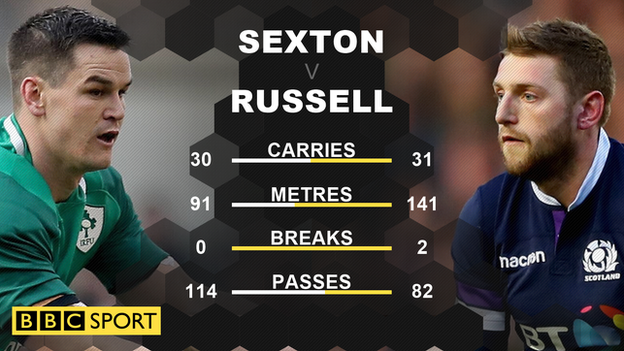
How the Irish and Scottish fly-halves measure up in this year's Six Nations
Against France, Italy and Wales, Sexton has conceded just two turnovers as he has expertly manoeuvred his side into Grand Slam contention.
In Scotland's first three matches, Russell has given the ball away nine times - triple the tally of Italy number ten, Tommaso Allan.
That recklessness with the ball is ingrained in Russell and Townsend, but it is anathema to the way Schmidt likes his team to play.
Irish defensive concerns
In the immediate aftermath of his side's 10-point loss in Dublin, Wales head coach Warren Gatland delivered a thoughtful analysis of how to beat Ireland.
Against an Irish side that had dominated possession and territory Gatland's team still managed to score three tries despite having their hands on the ball for just 11 minutes and 34 seconds.
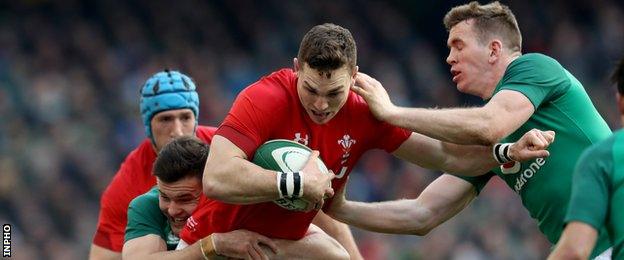
Ireland have conceded seven tries so far in this year's Six Nations championship
"They defend quite narrowly and came hard off their line and frustrated us at times," said Gatland.
"You have got to keep your patience against an Irish team, be prepared to kick a little bit and stay in that arm wrestle and wait for your opportunities."
Ireland have owned the ball for at least 10 minutes more than their opponents in each of their three games - an incredible difference in Test rugby - but they have still conceded seven tries in a campaign that has raised concerns about their defensive solidity.
Time in possession statistics can vary depending on the differing styles of play employed by teams and coaches with Wales demonstrating their attacking strength by crossing the Irish line three times despite having less than 14% possession in Ireland's half.
Similarly, Italy scored their three tries in Dublin with just 13 and a half minutes of possession and less than 12% of that in Irish territory.
The positional sense of players such as Jacob Stockdale, Bundee Aki and Dan Leavy has been questioned as Ireland's defensive system under Andy Farrell has been put under the microscope.
"Inevitably all teams get a bit narrow sometimes when they are feeling a bit stressed, when a team gets the advantage line on them or a half-break," admitted Schmidt after analysing the Wales match.
"You can't just fire off and fly at people and leave yourself short on the edges. So it's about getting that balance."
- Published7 March 2018
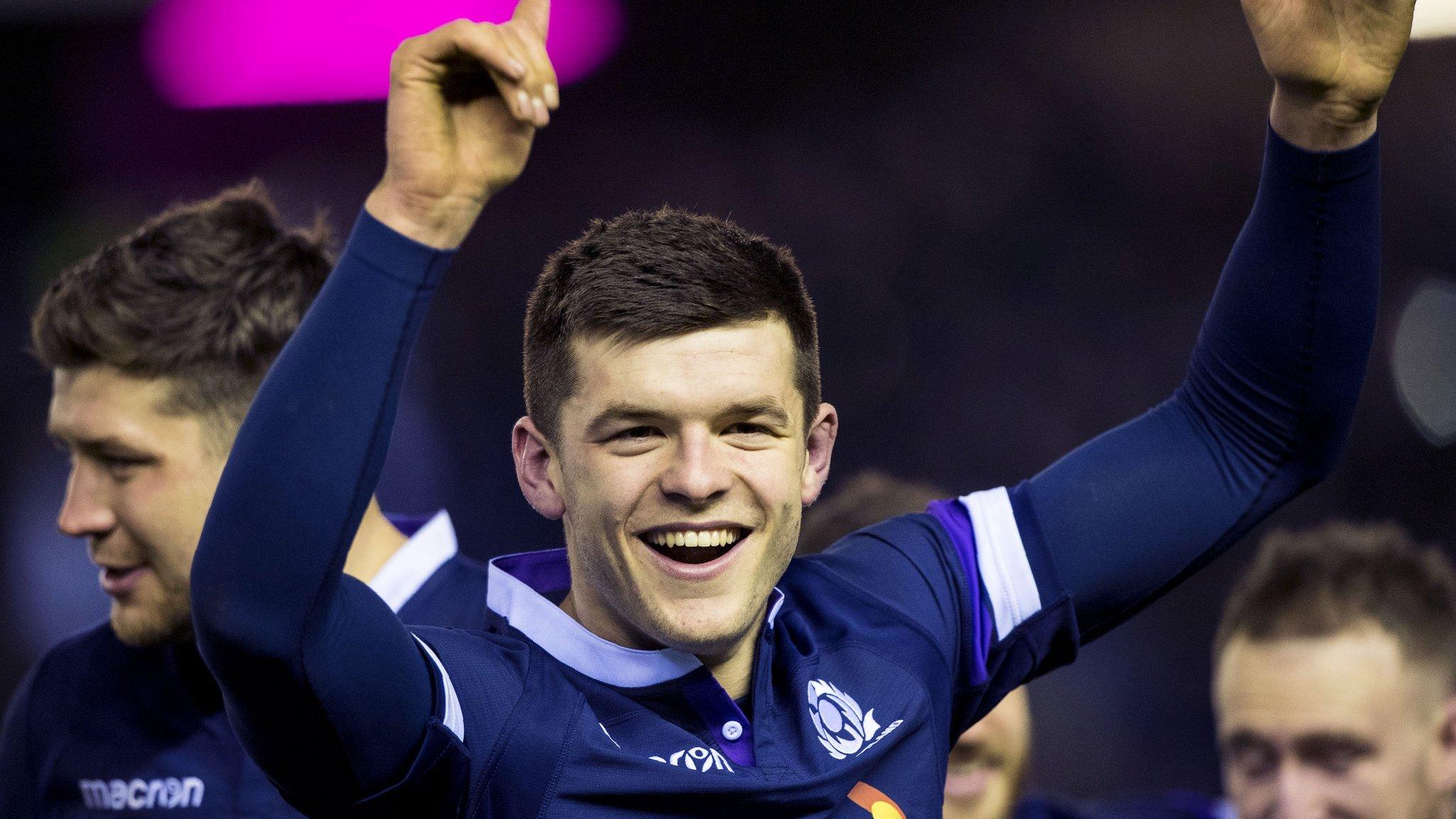
- Published6 March 2018

- Published26 February 2018
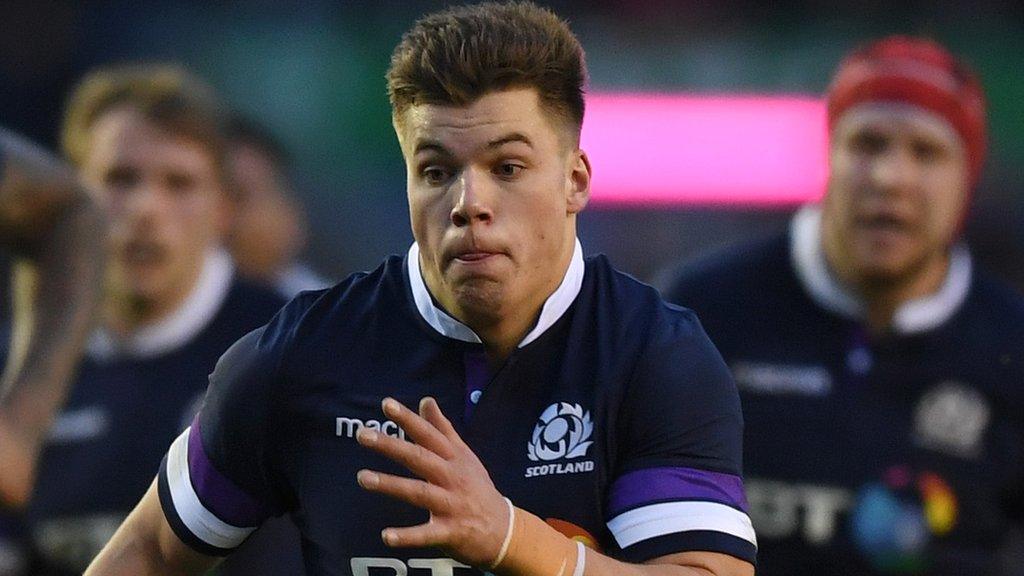
- Published26 February 2018
